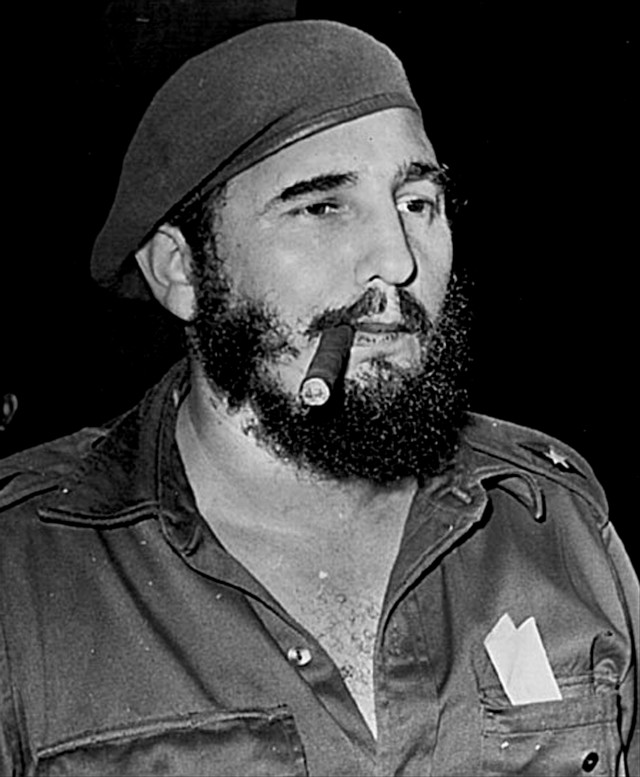
television Monday evening, emerging from virtual seclusion and offering
his most lengthy publicly aired comments in years. He looked aged, his
face drawn, but in decent health. His chosen theme: the threat of
nuclear war in the world — something for which he suggested
The TV gig on the popular evening news chat program
“Mesa Redonda” (Round Table) followed the publication over the weekend
of the first photographs showing Castro mingling with the public since
he fell ill in 2006. They were taken as he visited
His health in 2006 forced him to turn over formal control of the government to younger brother Raul after 49 years.
The TV appearance also coincided with
decision to free 52 political prisoners, the most massive such release
in a decade. The first of the prisoners were being readied Monday for
transfer to
Dressed in a casual jacket and plaid shirt, Castro,
who turns 84 next month, opened his remarks with discussion of tensions
between North and
“It would be a sea of flames,” he said, echoing language used by the North Korean government.
Castro frequently consulted notes, apparently some
of his columns he publishes regularly in the state-controlled media.
Parts of his speech were occasionally slurred but he was lucid, firm
and relaxed.
“I’ve got some points underlined here,” he told the show’s host, a sheaf of papers in his hands.
He then went on to repeat warnings that nuclear war may also be about to explode involving
Did his decision to take to the airwaves mean he
objected to the prisoner release? Was he trying to upstage the release,
distract attention from it? If so, he didn’t let on, sticking to
international and not domestic politics.
Or was he frustrated that his recent columns warning of nuclear holocaust were being generally ignored in
“In substance, (
weapons that would be replaced with other extremely destructive weapons
designed to terrorize the leaders of other States and to accomplish the
new strategy of complete impunity.”
The revolutionary leader had appeared in videotaped
television interviews twice since his illness and emergency intestinal
surgery, in June and September of 2007 — in part to dispel widely
circulating rumors at the time that he was dead. But most other
sightings of him have been in government-released photographs of his
private meetings with visiting dignitaries.
———
(c) 2010, Los Angeles Times.
Visit the Los Angeles Times on the Internet at http://www.latimes.com/
Distributed by McClatchy-Tribune Information Services.













